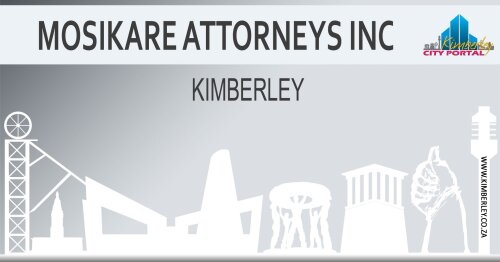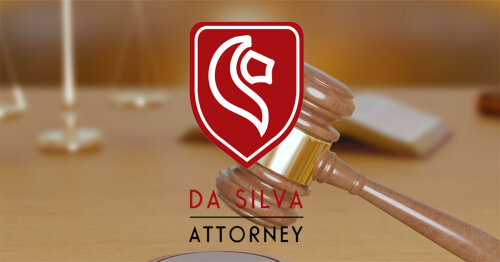Best Accounting & Auditing Lawyers in South Africa
Share your needs with us, get contacted by law firms.
Free. Takes 2 min.
Or refine your search by selecting a city:
List of the best lawyers in South Africa
About Accounting & Auditing Law in South Africa
Accounting and auditing laws in South Africa are primarily governed by the Companies Act 71 of 2008 and the regulations issued by the South African Institute of Chartered Accountants (SAICA). The country adheres to international standards such as the International Financial Reporting Standards (IFRS) and the International Standards on Auditing (ISA). Auditors in South Africa must be registered with the Independent Regulatory Board for Auditors (IRBA). These laws and standards ensure the transparency, accuracy, and integrity of financial reporting and auditing practices in South Africa.
Why You May Need a Lawyer
Engaging a lawyer experienced in accounting and auditing can be crucial in various situations. Individuals or businesses may need legal assistance when:
- Facing disputes over financial statements or audit reports.
- Dealing with allegations of financial misstatements or fraud.
- Needing guidance on compliance with local and international accounting standards.
- Undergoing an investigation by regulatory or tax authorities.
- Seeking advice during mergers and acquisitions.
- Addressing concerns related to corporate governance.
- Encountering conflicts between shareholders regarding financial reporting.
Local Laws Overview
The local legal framework for accounting and auditing in South Africa includes several key aspects:
- The Companies Act: Sets out requirements for financial reporting and audits, including the mandatory audit of public companies and certain private companies based on their public interest score.
- Public Interest Score: A metric used to determine whether a company’s financial statements must be audited or undergo independent review, considering factors like turnover, number of employees, and external shareholders.
- IFRS Compliance: All listed companies and some other entities are required to prepare their financial statements according to IFRS.
- Auditor Regulation: The Independent Regulatory Board for Auditors (IRBA) oversees the registration and conduct of auditors.
- Reporting Standards: The enforcement of international and local auditing standards ensures consistency and reliability in financial reporting.
Frequently Asked Questions
What is the role of an auditor in South Africa?
An auditor in South Africa examines financial records to ensure accuracy and compliance with applicable laws and standards. They provide an independent opinion on the financial statements of a company.
How can I determine if my company requires an audit?
Your company may require an audit if it is a public company or if it meets certain criteria based on its public interest score, which includes factors like turnover and number of employees.
What is a public interest score?
A public interest score is a metric used to determine a company's need for financial statement audits. It’s calculated based on turnover, the number of employees, and the level of third-party interest.
What legal recourse do I have if I suspect financial misstatements?
If you suspect financial misstatements, you should consult with a legal professional to explore options such as initiating an investigation or pursuing litigation against responsible parties.
Are there penalties for non-compliance with accounting standards?
Yes, non-compliance with accounting standards can result in penalties, including fines and other legal consequences, particularly if misleading financial information affects investors or stakeholders.
What qualifications must auditors in South Africa have?
Auditors must be registered with the IRBA and adhere to stringent educational and professional standards, including compliance with ongoing professional education requirements.
What is IFRS, and is it mandatory in South Africa?
IFRS stands for International Financial Reporting Standards. It is mandatory for all listed companies in South Africa to prepare their financial statements in accordance with IFRS.
How do I choose a qualified auditor for my business?
When choosing an auditor, ensure they are registered with the IRBA and have the necessary experience in your industry. You may also seek recommendations from professional networks or associations.
Can a lawyer help with negotiating financial terms in a business deal?
Yes, a lawyer with expertise in accounting and auditing can provide valuable assistance in negotiating financial terms and ensuring all aspects comply with legal and financial standards.
What are the main regulatory bodies for accounting in South Africa?
The main regulatory bodies include the Independent Regulatory Board for Auditors (IRBA) and the South African Institute of Chartered Accountants (SAICA).
Additional Resources
For further assistance, consider reaching out to the following resources:
- Independent Regulatory Board for Auditors (IRBA): Provides oversight of auditing practices.
- South African Institute of Chartered Accountants (SAICA): Offers guidance and support to accounting professionals.
- National Treasury of South Africa: Offers information on financial regulations and policies.
- South African Revenue Service (SARS): For tax-related inquiries and regulations.
Next Steps
If you need legal assistance in accounting and auditing, start by gathering all relevant documents, then consult with a legal professional specializing in this field. Consider seeking referrals from business networks or financial advisors. Preparing clear questions and understanding your objectives will make your consultation more effective. Stay informed by reviewing reputable sources and guidance from industry professionals. This approach will help ensure that you receive comprehensive advice tailored to your specific situation.
Lawzana helps you find the best lawyers and law firms in South Africa through a curated and pre-screened list of qualified legal professionals. Our platform offers rankings and detailed profiles of attorneys and law firms, allowing you to compare based on practice areas, including Accounting & Auditing, experience, and client feedback.
Each profile includes a description of the firm's areas of practice, client reviews, team members and partners, year of establishment, spoken languages, office locations, contact information, social media presence, and any published articles or resources. Most firms on our platform speak English and are experienced in both local and international legal matters.
Get a quote from top-rated law firms in South Africa — quickly, securely, and without unnecessary hassle.
Disclaimer:
The information provided on this page is for general informational purposes only and does not constitute legal advice. While we strive to ensure the accuracy and relevance of the content, legal information may change over time, and interpretations of the law can vary. You should always consult with a qualified legal professional for advice specific to your situation.
We disclaim all liability for actions taken or not taken based on the content of this page. If you believe any information is incorrect or outdated, please contact us, and we will review and update it where appropriate.
Browse accounting & auditing law firms by city in South Africa
Refine your search by selecting a city.

















